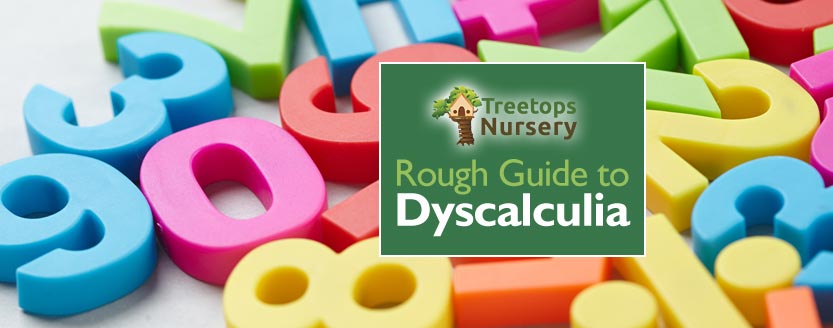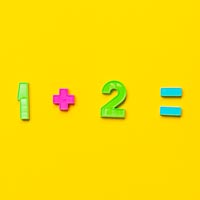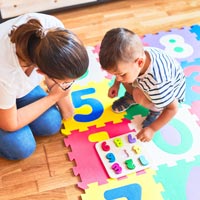
 Today, we look at another condition that can affect children: dyscalculia. This is a brain-related learning difficulty that affects both children and adults. Somewhere between 3 and 6 percent of the UK population is affected and some may also have other conditions like dyslexia, dyspraxia, ADHD, Asperger’s Syndrome or Autism. It’s important to know that the condition can affect individuals who are highly intelligent just as much as it affects those anywhere else on the intelligence spectrum. There is no cure for dyscalculia but there are lots of ways to help those with the condition (we’ll come to some of those later). It’s also important to know that, while children with dyscalculia may have issues with numbers, they can often have wonderful skills in other areas, for example in relation to creativity, problem-solving and intuition.
Today, we look at another condition that can affect children: dyscalculia. This is a brain-related learning difficulty that affects both children and adults. Somewhere between 3 and 6 percent of the UK population is affected and some may also have other conditions like dyslexia, dyspraxia, ADHD, Asperger’s Syndrome or Autism. It’s important to know that the condition can affect individuals who are highly intelligent just as much as it affects those anywhere else on the intelligence spectrum. There is no cure for dyscalculia but there are lots of ways to help those with the condition (we’ll come to some of those later). It’s also important to know that, while children with dyscalculia may have issues with numbers, they can often have wonderful skills in other areas, for example in relation to creativity, problem-solving and intuition.
N.B. For clarification, we will look at developmental dyscalculia here, not the type of dyscalculia caused by brain injury or stroke.
The Effects of Dyscalculia
A simple dictionary definition of the condition defines dyscalculia as “severe difficulty in making arithmetical calculations, as a result of brain disorder.” That is rather simplistic, however. The UK’s Dyslexia Association1 describes it in greater detail:
“Dyscalculia is a condition that affects the ability to acquire arithmetical skills. Dyscalculic learners may have difficulty understanding simple number concepts, lack an intuitive grasp of numbers, and have problems learning number facts and procedures.”
 The Diagnostic & Statistical Manual of Mental Disorders (DSM-5), as used by psychiatric professionals in the U.S., describes how those with developmental dyscalculia have problems making sense of numbers, memorising arithmetic facts and making fluent and accurate maths calculations. Clearly, such limitations can have a profound effect, including in terms of education because maths affects so many learning topics.
The Diagnostic & Statistical Manual of Mental Disorders (DSM-5), as used by psychiatric professionals in the U.S., describes how those with developmental dyscalculia have problems making sense of numbers, memorising arithmetic facts and making fluent and accurate maths calculations. Clearly, such limitations can have a profound effect, including in terms of education because maths affects so many learning topics.
Signs of Dyscalculia in Children
Due to the nature of the problem, signs of dyscalculia are unlikely to become evident until a child reaches an age when they begin to learn about numbers and mathematical concepts. Once they start, however, dyscalculic children may show one or more of the following signs:
- They may have trouble processing and understanding number concepts and, because of this, they will find it difficult to build their own skills around numeracy.
- Difficulties might include confusion over whether one number is greater or smaller than another and even something as simple as understanding the link between, say, a quantity of three apples and the number 3. Even the link between the number 3 and the word ‘three’ could be lost on them.
- At pre-school age, counting correctly may prove to be quite a challenge, how it applies to everyday life even more so.
- Even the concept of what the numbers represent may be an issue.
- Memory skills may also be affected.
 They may be more prone to continue using their fingers to count, long after their peers have moved onto mental arithmetic.
They may be more prone to continue using their fingers to count, long after their peers have moved onto mental arithmetic.- ‘Number facts’ will not come easily to children with dyscalculia, including perhaps simple ones like two plus two.
- Mathematical concepts like addition and subtraction (etc.) will be even more of a challenge.
- Games and other tasks involving numbers will prove difficult. For example, keeping score in a ball game.
- Because of all of this, children with dyscalculia may even avoid games and tasks involving numbers. The condition may cause them to have decreased self-confidence; they may become embarrassed around their peers because of their difficulties.
- As they grow older, understanding and managing money may also become a problem.
Perhaps surprisingly, some dyscalculic children also have difficulty with a sense of direction. This could manifest itself in something as simple as a board game where they cannot grasp the rules around whether, say, a particular chess piece can move to a particular spot on the board. Similarly, some children are poorer than expected at judging distances and coordination. A link between dyscalculia and the way the brain and eyesight work together may be behind this.
Is your child exhibiting any of these symptoms?
If so, don’t automatically assume they have dyscalculia, as something entirely different could well be responsible. If you are concerned, though, speak to a doctor who may refer your child to an educational psychologist, paediatrician or other professional. Bear in mind, though, that there is no de-facto test for dyscalculia. Professional research into the condition is at only a relatively early stage.
How Dyscalculic Children Can be Helped
 Also, of course, speak to the childcare and teaching professionals at your childcare nursery, pre-school, school or education setting. Just like staff at Treetops Nursery, they will be able to offer some support and also keep an eye out for possible signs. It’s always important for parents and childcare/teaching professionals to be in close contact anyway. In this way, we can all have the same goals in mind, share the same learning and development plans and keep each other informed as each child progresses on their learning journey.
Also, of course, speak to the childcare and teaching professionals at your childcare nursery, pre-school, school or education setting. Just like staff at Treetops Nursery, they will be able to offer some support and also keep an eye out for possible signs. It’s always important for parents and childcare/teaching professionals to be in close contact anyway. In this way, we can all have the same goals in mind, share the same learning and development plans and keep each other informed as each child progresses on their learning journey.
There are many ways children with dyscalculia can be helped. For example:
- We can give dyscalculic children more time to complete tasks involving numbers. Giving them advanced information and assistance about such tasks will help too.
- One-to-one help will be the most beneficial as explanations can be deeper, taken at a slower pace and repeated if required.
- We can all give them lots of practise to build skills and confidence.
- Larger tasks and problems involving numbers can be broken down into a series of smaller steps and tackled one at a time.
- Visual reference can help. For example printed multiplication tables.
- When mental arithmetic is not necessary for a task, let them use a calculator if they’re at an appropriate age for such things.
- Important words and terms can be highlighted on any printed maths-related task. Doing so can help the dyscalculic child understand more clearly and know where to focus the most attention.
 Use of lined or graph paper can sometimes help too, so as to keep corresponding numbers in line and steps more clear.
Use of lined or graph paper can sometimes help too, so as to keep corresponding numbers in line and steps more clear.- Introducing special teaching strategies can help, for example using a multi-sensory approach or using special tools and software.
- More than anything, though, it’s about catering to each child’s unique needs, including any Special Educational Needs and Disabilities (SEND). At Treetops Nursery, we excel at this with a learning and development programme that’s tailored for each individual. Using this approach brings out the very best in every child.
Looking for the Best Nursery in Willesden, or near Harlesden, Kensal Green or Willesden Green?
 Treetops is an outstanding nursery based in Willesden, close to Harlesden, Kensal Green and Willesden Green. If you have a baby or child aged up to five, do consider us for your weekday childcare. Due to the popularity of our nursery and pre-school, places are in high demand. So, to avoid possible disappointment, let us know as soon as possible if you are considering a nursery place here for your child:
Treetops is an outstanding nursery based in Willesden, close to Harlesden, Kensal Green and Willesden Green. If you have a baby or child aged up to five, do consider us for your weekday childcare. Due to the popularity of our nursery and pre-school, places are in high demand. So, to avoid possible disappointment, let us know as soon as possible if you are considering a nursery place here for your child:
